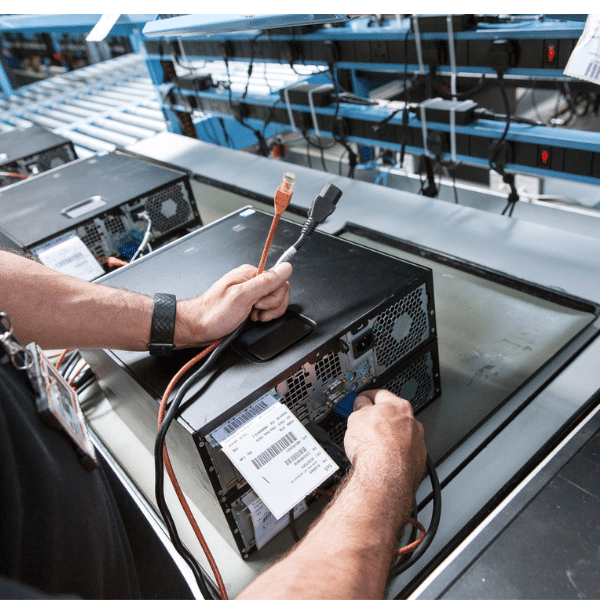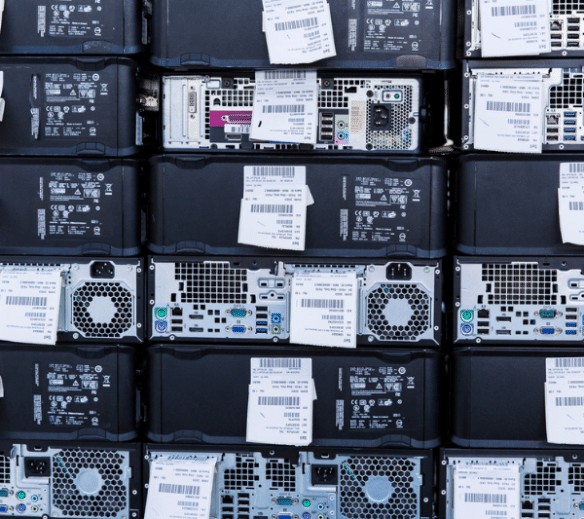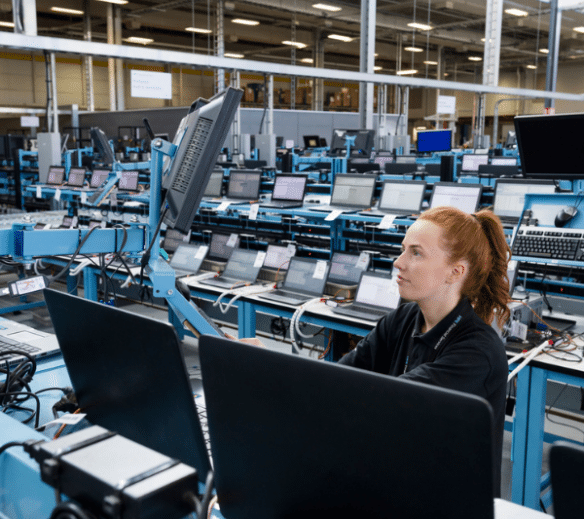
October 3, 2024
Spring is finally here, along with the dreaded spring clean. But this spring, it is important to recycle your old, unused, or broken technology rather than simply throw it out and here’s why…
What is e-waste?
E-waste is a term for electronic waste. This may include plugs, cords, and electronic components but the most common sources are electronics we use every day such as home appliances, air conditioners, computers, mobile phones, or televisions to name a few.
The UK has been found to be the second largest producer of electronic waste according to the GAP group. It was further found that between 2008 to 2022 the e-waste and plastic waste produced by the UK has almost doubled. Here are 5 reasons why we should recycle our old technology to prevent the production of unnecessary e-waste and carbon emissions.

1. The circular economy
At the moment, only around 2.5% – 10% of electronics in the UK are being reused. Recycling your unwanted technology reduces the demand for new materials, thereby lowering the demand for extracting, refining, and processing raw materials.
These materials include gold, silver, copper, platinum, aluminium and cobalt, all of which can be found in your unused technology. The environmental benefits of reusing the materials in our old technology rather than mining new ones include;
- Less greenhouse gases due to less mining
- Protecting environments such as the rainforest which are often targeted for mining
- Decreasing in the need for deforestation
- Protecting habitats
- Less need to transport these globally
Recycling your old technology rather than throwing it out could also help benefit the local community. Old technology can often be refurbished, and if re-used and sold at a lower cost, your second-hand devices could help others save while lowering the demand for raw materials.
2. Less waste goes to landfill
One of the more obvious reasons to recycle means less e-waste goes to landfill. Particularly important in the UK, with already around 500 landfill sites, space is quickly filling up. It is estimated that disposing of e-waste in landfill has cost the UK over £370 million alone.
Landfills are particularly harmful to the environment as the trapped waste is starved of oxygen and leads to the production of methane and CO2. The build-up of waste prolongs the breakdown process too. Landfills also produce a harmful liquid called leachate which seeps through waste and collects toxic substances, which can ultimately impact the nearby earth and water making the environment uninhabitable.


3. Prevent toxic waste
Unlike your typical rubbish, e-waste can produce dangerous toxins, for instance chemicals such as mercury, lead, beryllium and cadmium which can contaminate water, damaging nearby ecosystems.
Recycling your technology prevents these toxic substances polluting the environment, and instead be handled safely and accordingly.
4. It’s easier than you think
It is easy to recycle your technology, so why not? For example, HP offers places around the UK where you simply go and hand in your old technology for them to reuse and recycle. As part of HP’s sustainability commitment, they collect products for recycling and resale in 76 countries worldwide.
DTP also offer a platinum service to recycle your old tech, whereby we ethically shop around on your behalf to ensure you receive the best rebate, rather than offering a fixed cost which may not give you the best value.


5. Improve your own carbon footprint
While reducing your own environmental impact might seem insignificant at first glance, every little step helps combat climate change so it is important to do your bit too. Being conscious of your own sustainability related actions not only improves your local environment but helps motivate others around you to make small changes too. Because those small changes collectively make a big difference.
Want to find out more about DTP’s sustainability initiatives? Learn about our journey to become carbon neutral by 2035.
DTP ZERO

